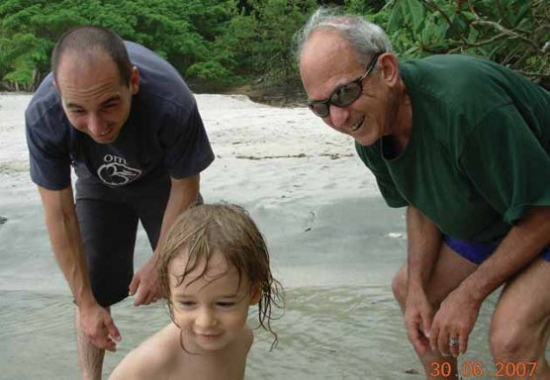
Eric Moss (rt) with his son Jonathan & grandson Rio, cavorting on Costa Rica beach.
One morning I was walking in the jungle in Costa Rica, far from my home in Israel, when I felt sudden pains in my chest and immediately knew I was having another heart attack. I knew because even though twenty years had passed since my first one – shortly after the First Gulf War – the memory of that trauma never went away.
But at that time I had been at home; now, I was in one of the most far-away parts of far-away Costa Rica, visiting two of my sons, their wives and our little grandson, who live there in a spiritual/ecological commune. A beautiful place yes. But no paved roads. Hardly a telephone. And hordes of wild monkeys in the trees all around. When the pains started, all I could think was that I was going to miss out on a wonderful vacation.
One of my sons ran for a pick-up truck and helped me into the back seat. My terrified wife also sat on the back seat, while I lay next to her with my feet on her lap. My other son jumped into the front. He pushed his hand through the crack between the two seats, and I held on tight, feeling his fingers warm on my palm.
We took off over a dirt road that led to a nearby village, where there was a small medical clinic. As the truck bounced along I looked up at the clouds, and between bouts of pain wondered whether I'd soon be up there too. We reached a river that had risen in the prior days' rain and now blocked the road. My driver-son stopped for a moment and then drove straight in, water splashing on all sides. One thought ran through my head: if the truck stalls, I'm finished. Some way to go.
We did make it across, though, and soon, one arm around a shoulder of each son, I hobbled into the clinic. The young doctor gave me an ECG and put some aspirin under my tongue. The pains and my panic disappeared so quickly that I grandly announced we could return to the commune and continue our vacation.
But the doctor thought otherwise. He had sent my ECG by fax to a cardiologist at the modern American hospital in the capital city, San Jose. It showed worrisome cardiac activity. The return fax strongly recommended that I get there as soon as possible.
The doctor phoned for a rescue plane. The voice on the other end was discouraging. The planes were all out on morning rescue missions. "Even if they returned in the next few hours, there will be afternoon tropical thunderclouds. It will be impossible to fly." We made a quick decision and set off on a seven hour drive to the hospital in San Jose. It was a long, frightening trip, at first bumping over dirt and gravel roads which only later became paved ones.
Mercifully the pains in my chest stayed quiet and we made it to the hospital late in the afternoon.
There, I coped the way I usually do in difficult situations: by strong denial and pattering chit-chat. But my forced cheerfulness didn't fool the ER staff. They diagnosed a heart attack in progress and sent me to Intensive Care.
The two weeks that followed are part of my medical history. I had a complicated but successful angioplasty procedure. Several arterial blockages were cleared and stents were inserted to keep the arterial walls from collapsing in the future. The whole procedure was quite painful, but hours after it was over, I felt better and lighter, probably because the blood was flowing smoothly again through my heart.
The next day I was visited by one of the surgeons who had performed the procedure. He took off his surgical cap and mask, and I was startled to see he had a big beard and was wearing a yarmulka. He told me in Spanish-accented Hebrew that he knew I was from Israel and asked me if I would like to say prayers with him. "I'm not religious," I said. "I never even had a barmitzvah. His face fell, and I thought, "the man just saved my life. How can I refuse?"
"I'd be happy to pray with you," I said. He smiled, took a prayer book and two prayer shawls from his surgeon's bag and helped me and one of my sons put on the leather prayer straps. We repeated the prayers after him. When we had finished, he told me that this counted for the barmitzvah I'd never had. All three of us embraced, and I swear I felt a subtle movement of air though the windows were closed.
Some days later I was discharged. My wife and I moved into a nearby guest house for a restful week while my children and grandson hovered around me. It wasn't exactly the family vacation we'd planned but it was filled with love and concern.
It was during this period that we had to face a new problem: How was I to get back to Israel? After much thought, we made arrangements for an Israeli doctor to travel to Costa Rica and accompany me home.
On the appointed day, Dr. A arrived. After a 20 hour flight, he had come straight from the airport ready to work. He was a quiet, confident man, about half my age, who wasted no time giving me a thorough examination in the living room of the guest house. When he determined that my signs were good, we all relaxed.
The next morning he showed up by taxi, drove us to the airport and from then on never left my side. I felt like a true VIP. He took me by wheel chair to the airport counter and from there to the head of the boarding line. On the plane to Miami he hooked me up to a mobile oxygen tank and took my pulse every fifteen minutes. In Miami, where we had a change-over, he wheeled me from one terminal to the other and made all the arrangements for ticketing on El Al.
On the cross-Atlantic flight, he got us both set up in First Class, where kneeling down on the floor between our seats and those in front of us, he hooked me up to portable cardiac equipment. When I had to relieve myself, he accompanied me to the bathroom. If I took too long, he'd knock on the door and ask if everything was all right.
With comfortable seats, good food and warm staff attention, I nearly forgot my situation. Over the Greek islands I looked down and was so enchanted by several of the smaller ones that I happily planned a visit in the near future. I was definitely in deep denial about the seriousness of my condition.
Finally the plane landed in Ben Gurion airport. My wife followed Dr. A as he wheeled me into the terminal. At the baggage conveyer belt we all hugged goodbye. Dr. A felt like a close friend. "If we've got young people like this in Israel," I said expansively to my wife, "the country has a good future".
Then I thought, with some concern, about my own. It felt good to be home. The jungles of Costa Rica seemed far away.
Eric Moss is a Clinical Psychologist, who lives in Kfar Saba. He has four grown children and a loveable Pointer dog.
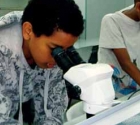 Visit to Michmoret Research Center - Gifted Children's Project
Visit to Michmoret Research Center - Gifted Children's Project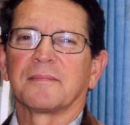 Esra Kfar Saba Meets Our New Deputy Mayor
Esra Kfar Saba Meets Our New Deputy Mayor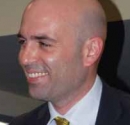 Another glorious evening with pianist Gil Shochat
Another glorious evening with pianist Gil Shochat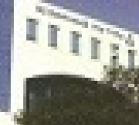 Yad Sarah's new house in Raanana
Yad Sarah's new house in Raanana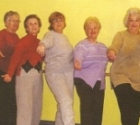 English speaking Feldenkreis
English speaking Feldenkreis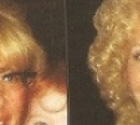 Men don't Make Passes at Girls who Wear Glasses
Men don't Make Passes at Girls who Wear Glasses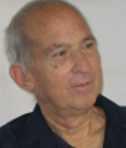 Eric Moss
Eric Moss